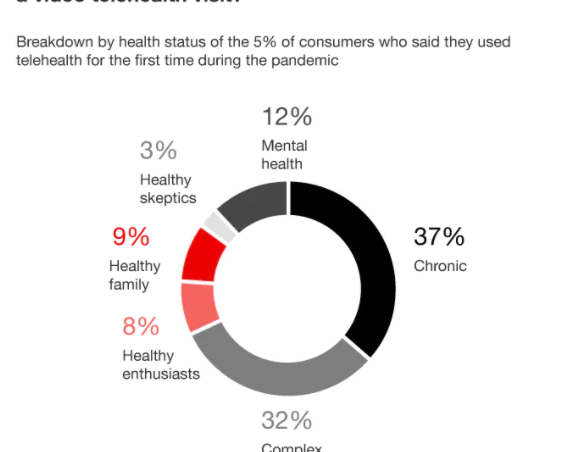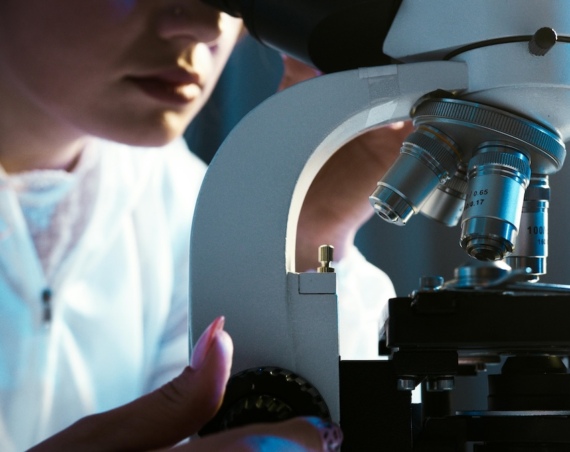
Activewear brand lululemon today released its first ever Global Wellbeing Report, advancing the company’s commitment to advocate for wellbeing—enabling holistic wellbeing through movement, mindfulness, and connection. The 10-country study benchmarks the state of wellbeing with the inaugural Global Wellbeing Index issued by lululemon, and explores the dimensions, drivers, and barriers to being well.
“The events of the past year brought unprecedented challenges to the physical, mental, and social wellbeing of people worldwide,” said Calvin McDonald, Chief Executive Officer. “At lululemon, we believe in a holistic approach to wellbeing that helps create a healthier future for all. This research accelerates our efforts to support the wellbeing of the guests, employees and the communities we serve.”
The report reveals an urgency to improve with only 29 percent of global respondents indicating strong wellbeing across physical, mental, and social dimensions – punctuating the impact of the pandemic and social, political, and environmental issues. Optimism for the future shows a sharp decline, and Gen Z emerges as the most vulnerable generation with the lowest wellbeing. However, all age groups and geographies surveyed showed barriers to wellbeing—and challenges with time, stress and access to resources expose a need for employers to better support workforce wellbeing.
As people seek to strengthen their state of being well, focusing on basics—like sleep, connecting with loved ones and physical activity—and taking a balanced and proactive approach are linked to stronger wellbeing and a more optimistic view toward the future.
The state of global wellbeing exposes the paradox of people saying they feel “fine.”
The Global Wellbeing Index currently sits at 65 on a scale of 100, indicating a moderate level of wellbeing on a spectrum of weak to strong. The Index is based on how people in countries around the world rate the way they feel across the physical, mental, and social dimensions of wellbeing.
At face value, wellbeing appears to be reasonably resilient with a moderate overall Index score. However, a closer look at the three fundamental pillars of being well exposes deeper vulnerabilities. Less than a third (29%) of global respondents indicate strong wellbeing across all three dimensions.
An examination of performance against the top five drivers of overall wellbeing reveals a critical need to improve. The percent who strongly agree are as follows:
- Only 15% consider themselves in good physical health.
- Only 17% feel they are able to manage stress effectively.
- Only 19% feel like they have enough energy to be able to accomplish things they need to do every day.
- Only 19% feel confident in themselves most of the time.
- Only 18% have a good work/school/home life balance.
Optimism for the future is on the decline.
The last year—marked by the COVID-19 pandemic and systemic inequities in our society—took a massive toll on global confidence. Optimism has fallen with only 40% feeling optimistic about the future now, compared to 59% who felt optimistic about the future a year ago. As optimism declines, the importance of wellbeing is rising with half of global respondents expecting to increase focus on physical and mental wellbeing this year.
A range of challenges must be addressed in the pursuit of being well. Eighty-six percent report barriers to wellbeing with key inhibitors including COVID-19 (51%), time/personal responsibilities (47 percent), lack of money (46%), lack of a personal support network (45%), health conditions (42%), stress (32%), and limited access to resources (32%).
Gen Z has the lowest wellbeing among generations.
Global youth lag Millennials, Gen X, Boomers and Mature generations on the Wellbeing Index. More Gen Zs (92´%) report facing barriers that impact their wellbeing—including stress and a lack of time, money, knowledge and resources—than any other generation. Gen Z has had the most difficulty coping with COVID-19 and is the generation most focused on, and impacted by, social issues. One in four Gen Zs are deeply affected by issues—including COVID-19, climate change, women’s rights and racial injustice—creating a barrier to their mental wellbeing.
The generational impact is acute in the United States, where Gen Zs report the lowest Index score (56) and are the least likely to feel well across all three dimensions (only 13%) than in any other country.
A holistic approach and proactive mindset catalyze stronger wellbeing and optimism.
People coping very well during these unprecedented times are focused on simple activities to support their wellbeing. The actions creating the greatest impact among those coping very well—versus those having difficulty coping—include getting enough sleep, eating healthy food, connecting with people they care about, being physically active, and spending time outdoors.
The study finds that the drivers of being well are interconnected; making strides in one area will benefit overall wellbeing. And the research reveals that aproactive approach to personal development drives stronger wellbeing and a more optimistic view toward the future:
- Those who are proactive are more likely to feel they are in good physical health and able to manage stress—the top two drivers of overall wellbeing.
- People with a proactive mindset are significantly more likely to be optimistic about the future (53%) than those who are not proactive (22%).
The impact of being proactive is seen in China, the market with the highest regional Wellbeing Index of 79 (vs. 65 global average), and 62 percent of its citizens feeling well across all three dimensions. The research indicates strong wellbeing in China is supported by a proactive mindset amongst 78% of the population.
Employers must do more to support being well.
Despite stronger wellbeing among the employed population, there is an opportunity for employers to support better time balance and stress management for their workforce. Only 15 percent of those employed strongly agree their employer offers resources that support their overall wellbeing.
The impact of work on wellbeing is highlighted in Japan, which reports the lowest regional Wellbeing Index of 60, with only 21% of its citizens feeling well across all three dimensions. Stress acts as a greater barrier in Japan, where fewer than 1 in 10 experience a positive work/life balance.
The findings call for progress in the way employers can help build wellbeing—and in turn, resilience—at work, with the study revealing a close connection between a positive work environment and optimism for the future.
For lululemon, one of the guiding principles the Company established to navigate COVID-19 was to support its people, which included providing its employees with physical, mental, and social programs. The Company has offered more than 1,100 online wellbeing and development courses to employees since the onset of the pandemic and rolled out Mental Health First Aid training to equip leaders with skills needed to support employees.
In October 2020, lululemon released its first-ever Impact Agenda outlining multi-year social and environmental goals and strategies to create a healthier future. Goals include providing access to wellbeing tools for more than 10 million people by 2025 and investing $75 million (USD) to advance equity in wellbeing in its global and local communities by 2025, among others.




